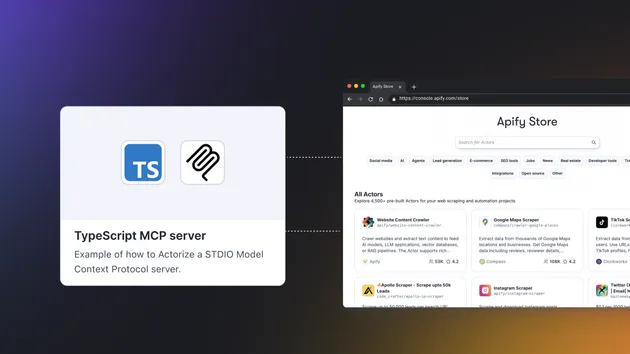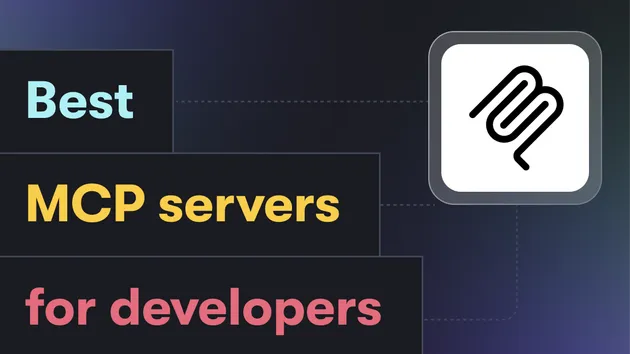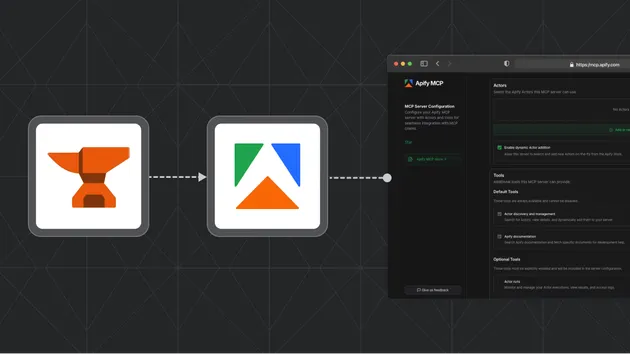Mcp Server Generator
Pricing
from $0.01 / 1,000 results
Mcp Server Generator
Pricing
from $0.01 / 1,000 results
Rating
0.0
(0)
Developer

Cody Churchwell
Actor stats
0
Bookmarked
1
Total users
0
Monthly active users
3 months ago
Last modified
Categories
Share
🚀 MCP Server Generator from OpenAPI
Automatically generate production-ready Model Context Protocol (MCP) servers from OpenAPI/Swagger specifications.
Save hours of boilerplate coding. Just provide your API spec, and get a complete, type-safe MCP server ready to deploy.
Features
- ✅ OpenAPI 3.0 & Swagger 2.0 support
- ✅ TypeScript or Python output
- ✅ Type-safe tool definitions
- ✅ Authentication handling (API keys, OAuth, Bearer tokens)
- ✅ Automatic parameter validation
- ✅ Error handling built-in
- ✅ Documentation generated
- ✅ Ready to deploy - complete package with dependencies
Use Cases
| Scenario | Benefit |
|---|---|
| API Integration | Turn any OpenAPI API into MCP tools in minutes |
| LLM Agents | Give AI agents access to your APIs instantly |
| Rapid Prototyping | Test MCP integrations without writing boilerplate |
| Multi-API Orchestration | Generate servers for multiple APIs and compose them |
Quick Start
- Find your API's OpenAPI spec (Swagger JSON/YAML URL)
- Run this Actor with the spec URL
- Download generated code from Key-Value Store
- Deploy your MCP server
Input
Output
Complete MCP server with:
server.tsorserver.py- Main MCP server implementationpackage.jsonorrequirements.txt- DependenciesREADME.md- Usage documentation
All files saved to Key-Value Store and dataset.
Example Generated Code
TypeScript:
Python:
Why MCP?
Model Context Protocol (MCP) is the standard protocol for connecting AI assistants to external tools and data sources. Adopted by Anthropic, Google, and OpenAI.
Building MCP servers manually requires:
- Understanding MCP protocol specifications
- Writing request/response handlers
- Type definitions for all endpoints
- Error handling
- Authentication logic
This Actor does all of that automatically.
Advanced Features
Tag Filtering
Only generate tools for specific API sections:
Authentication
Automatically handles:
- API Key authentication (header, query param)
- Bearer token authentication
- OAuth 2.0 flows (code generated, you add tokens)
Test Generation
Includes unit test templates for all generated tools.
Technical Details
Parsing: Uses swagger-parser for robust OpenAPI validation and dereferencing
Code Generation: Handlebars templates for clean, maintainable output
Type Safety: Full TypeScript type definitions or Python type hints
Error Handling: Try-catch blocks with meaningful error messages
Standards Compliant: Follows MCP 1.0 specification exactly
Limitations
- Complex authentication flows may require manual enhancement
- Custom request/response transformations not supported
- Generated code is a starting point - customize for production
Built for Apify $1M Challenge
This Actor solves a real problem in the exploding MCP ecosystem. Every API with an OpenAPI spec can now become MCP-enabled in seconds.
Ready to generate your MCP server? Run now →




